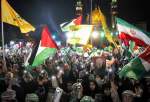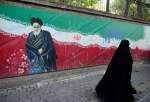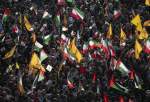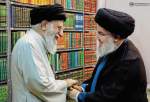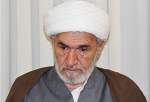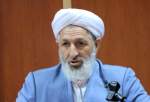5 Apr 2025
- Tehran slams anti-Iran resolution by UN Human Rights Council
- Israel is committing collective punishment, war crimes in Gaza: Algeria
- Italian opposition leader calls for full arms embargo on Israel
- Palestine Red Crescent president demands independent probe into Israeli crimes in Gaza
- UN envoy condemns Israel’s repeated attacks in Syria
- 19 civilians killed in Israeli airstrike on Khan Younis, dozens more injured
- Pakistan condemns Israel's new Gaza security corridors, Al-Aqsa raid
- Hamas slams Hungary's withdrawal from the International Criminal Court
- Gaza: 1,163 civilians killed since Israel resumed genocide
- Qatar condemns Israel's policy of displacing Palestinians from Gaza












